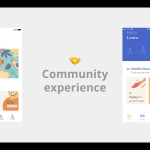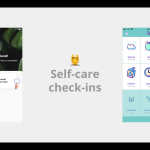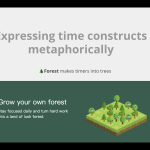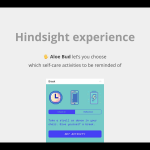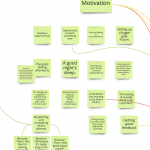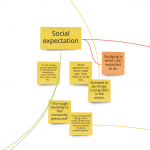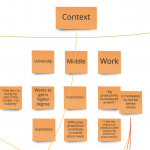Laura Grigorjan
- Faculty of Design
- Interaction Design
- ma
- bari: finding time for self-care in a busy society
- Tutor(s): Maarja Mõtus, Lauren Kelly
‘too busy’
‘exhausted’
‘sleep-deprived’
‘stressed’
‘burnt out’
These are words that far too often describe the state of mind of modern students and employees. Constantly feeling such overwhelming work-related stress can lead to more serious health conditions, such as mild cognitive impairment, dementia and Alzheimer’s disease later in life.
I believe that these detrimental effects of being ‘too busy’ are often trivialized in our society. For this reason, in this project, I focused on bringing emphasis on well-being into the modern busy person’s work culture.
To achieve this goal, I used Behavioural Design methods, such as:
1. looking at behavioural literature (which includes studies and articles in the field of psychology and sociology) on the topics of busyness and subjective well-being.
My main finding was that gaining work-life balance can prevent or reduce work-related stress
2. looking at existing solutions in the form of digital applications to pinpoint novel features (community experience & self-care check-ins) and insights found through autoethnographic analysis:
3. interviewing people to understand what drives them to overwork
4. analysing the interviews by using a behavioural framework called the Drive Grid, which helps to define the user’s feelings, intentions, needs, motivations, self-efficacy, bounded rationality and cognitive biases. Hidden influences of the behaviour are also found by looking at how the user is affected by other people and their environment:
5. creating behavioural archetypes and design principles that conclude the research into behaviour patterns of the users as well as main insight points:
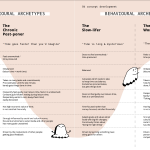
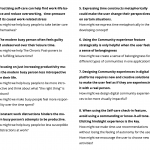
Ideating on the archetypes and design principles prompted the development of bari: a self-care application, that encourages its users to be kinder to themselves. Bari is designed for busy people who often feel overwhelmed and time-pressured with or at work. It encourages and motivates to routinely make time for yourself and helps to
spend that time in more balanced and fulfilling ways
Check out the clickable prototype here: click

